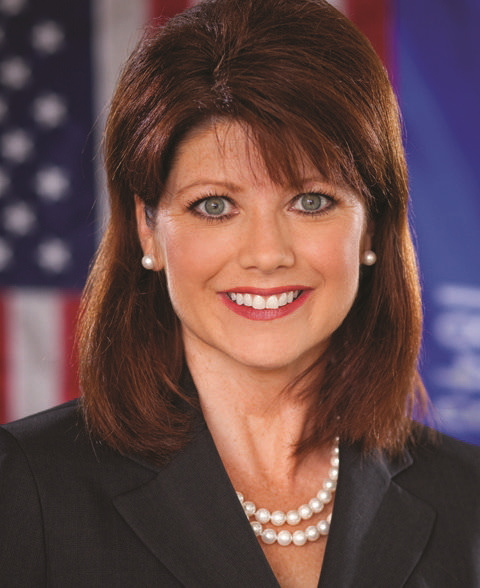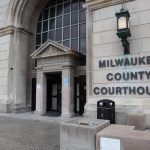Parties Transform ‘Non’-Partisan Elections
Republicans lead push to turn city, county and school board races into partisan campaigns.
Last week’s election may have made a myth out of all civics-books references to Wisconsin’s “non-partisan” spring elections.
Endorsements, recruiting and get-out-the-vote efforts by the Democratic and Republican leaders for school board and local government candidates mean many local candidates now can’t escape being tied to a party, whether they want to or not.
According to the National League of Cities, non-partisan elections started out of beliefs that political parties are irrelevant to providing local services and could invite cooperation between elected officials from different parties. In non-partisan elections, no party affiliations are listed next to candidates’ names.
Instead, on Tuesday, efforts by both parties reflected the national divide over how school boards responded to the COVID-19 pandemic and curriculum concerns and Republicans’ efforts to elect more conservatives. Both parties also used Tuesday’s elections as a training exercise for Nov. 8, when voters will elect a U.S. senator, U.S. House members, governor, attorney general and members of the Legislature.
Rebecca Kleefisch, the former lieutenant governor and best organized Republican candidate for governor, said she had worked to elect and donated campaign cash to more than 100 local candidates. “I am so proud to stand by scores of candidates who stepped up and put their names on the ballot to serve their communities and thank them for their willingness to serve,” Kleefisch said in a statement.
If she wins the August primary and is the GOP’s candidate for governor, Kleefisch expects the local candidates she helped to return the favor, helping her defeat Democratic Gov. Tony Evers on Nov. 8.“This momentum begun by parents fed up with excuses and failures will be the reason we will defeat Tony Evers in November,” Kleefisch said. “We won’t stop until liberals like Tony Evers, who don’t listen to parents, are kicked out of office and our voices are finally heard.”
Wikler also praised the DePere Council victory of Pamela Gantz, who Wikler said defeated incumbent Kelly Ruh, “who was one of the Republican Party of Wisconsin’s fraudulent electors in 2020.” Wikler was referring to Republican Party officials who authorized an Electoral College slate for President Donald Trump, who lost to President Joe Biden.
But State Republican Party Chair Paul Farrow said Democrats “routinely” get 80% of Milwaukee’s vote, so Johnson’s win was no surprise. “Conservatives were successful in roughly two-thirds of the races in which we were active, including swing and Democrat-leaning areas,” Farrow said. “When we stand up and fight back against the far-left takeover of our local governments, we win.”
Farrow said conservative voters replaced an Evers-appointed Court of Appeals Judge, Lori Kornblum, with Waukesha County Circuit Court Judge Maria Lazar; won a majority on the Green Bay City Council; “flipped” boards of supervisors in seven counties (Adams, Calumet, Door, Kenosha, Marathon, Rock and St. Croix), and added six seats on the La Crosse County Board of Supervisors.
The state Republican Party urged members to run for office, sign up to work as poll workers and offered candidates’ training.
Farrow was especially proud of conservatives who won school board elections: “Every targeted conservative candidate won their school board elections in Cedarburg, Elmbrook, Manitowoc, Menomonee Falls, Germantown, Wausau, Oconomowoc, Whitnall, Waukesha, Altoona, Amery, New London, Neenah [and] West Bend.”
Farrow said Tuesday’s election signaled that Republicans will win on Nov. 8. “Our grassroots operation is battle-tested and well-positioned.”
After Nov. 8, the next statewide election will be in April 2023 for the state Supreme Court seat of Justice Patience Roggensack, who will be 82 in July and who may not run again. That Republican-versus-Democrat fight will be anything but non-partisan.
Steven Walters started covering the Capitol in November 1988. Contact him at stevenscotwalters@gmail.com
If you think stories like this are important, become a member of Urban Milwaukee and help support real, independent journalism. Plus you get some cool added benefits.
The State of Politics
-
RNC Brings Fame to Gen Z Party Leader
 Jul 15th, 2024 by Steven Walters
Jul 15th, 2024 by Steven Walters
-
Wisconsin’s Republican Roots Run Deep
 Jul 8th, 2024 by Steven Walters
Jul 8th, 2024 by Steven Walters
-
Feuding Supreme Court Justices Need a Break
 Jul 1st, 2024 by Steven Walters
Jul 1st, 2024 by Steven Walters






















